★★½
“Taken-ish.”
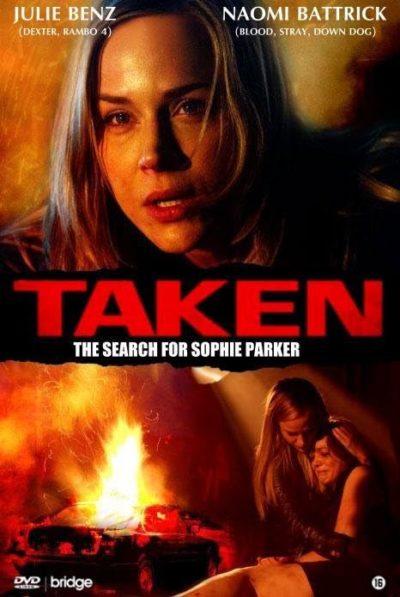 For a Lifetime Original Movie, this is actually close to the best of its kind I’ve seen., but it is surely docked points for being a thoroughly shameless knock-off of a certain Liam Neeson movie, all the way down to the title. As there, we have an American abroad, searching for a teenage daughter who has been kidnapped by even more foreign sex-traffickers. They will stop at nothing – nothing, I tell ya! – to recover their child, be that personal danger or interference from local corrupt police. The main difference is it’s a heroine, NYPD detective Stevie Parker (Benz), with the location being shifted from Paris to Moscow – though under current circumstances, the location has not aged well.
For a Lifetime Original Movie, this is actually close to the best of its kind I’ve seen., but it is surely docked points for being a thoroughly shameless knock-off of a certain Liam Neeson movie, all the way down to the title. As there, we have an American abroad, searching for a teenage daughter who has been kidnapped by even more foreign sex-traffickers. They will stop at nothing – nothing, I tell ya! – to recover their child, be that personal danger or interference from local corrupt police. The main difference is it’s a heroine, NYPD detective Stevie Parker (Benz), with the location being shifted from Paris to Moscow – though under current circumstances, the location has not aged well.
Certainly, letting your daughter Sophie (Battrick) now go by herself to Russia, even if she is friends with the ambassador’s daughter, would feel like utterly irresponsible parenting. Even a decade ago when this was made, it seems questionable, and concerns prove justified. Despite the presence of lurking CIA minder Nadia (Bailey), it’s not long before Sophie and her pal have snuck out, gone to a nightclub, been roofied, and are on their way to becoming the playthings for some rich tycoon, courtesy of the Chechen mafia. Mama Parker is not happy. She’s on the first plane to Moscow, where she teams with Nadia and reluctant local cop Mikhail (Byron, who’s English, though his IMDb credits are littered with Eastern Europeans!) to work her way up the chain and rescue the girls.
It’s never less than glaringly obvious, and the first thirty minutes are especially excruciating in this department, not least due to a shoehorned romance for Stevie: it is Lifetime, after all. Once she arrives in Russia – actually, Bulgaria standing in for it – while things don’t get any less predictable, the energy level ramps up several degrees, and this becomes considerably more watchable. Benz has the necessary intensity to be the unstoppable force she needs to be, and pairing her with another woman is an additional wrinkle that works nicely. The action is a bit limited, with the only real sequence of note at the end, when the pair storm the hotel where Sophie is being held before her departure, followed by a chase back to US sovereign territory at the embassy.
There’s no denying a major case of American saviour complex here, with the locals being portrayed as useless or actively evil, and needing the help of the USA in order for any action to be taken. Chris noted the presence of a large Stars and Stripes in the film’s final shot, and it seems entirely deliberate, reminding viewers that they are now back on safe, i.e. American soil. Yet there is surprising darkness, not least in the uncompromising fate meted out to the corrupt official. After a start where this struggled to hold my attention, by the end I was being just about adequately entertained. Given the source, that’s high praise indeed.
Dir: Don Michael Paul
Star: Julie Benz, Amy Bailey, Andrew Byron, Naomi Battrick





 RIP James Caan. I mention his passing, because by coincidence I watched this the same day, and there are a couple of nods to Misery, one of Caan’s most famous works. There’s a character called Mrs. Wilkes, and we also get an explicitly acknowledged re-enactment of
RIP James Caan. I mention his passing, because by coincidence I watched this the same day, and there are a couple of nods to Misery, one of Caan’s most famous works. There’s a character called Mrs. Wilkes, and we also get an explicitly acknowledged re-enactment of 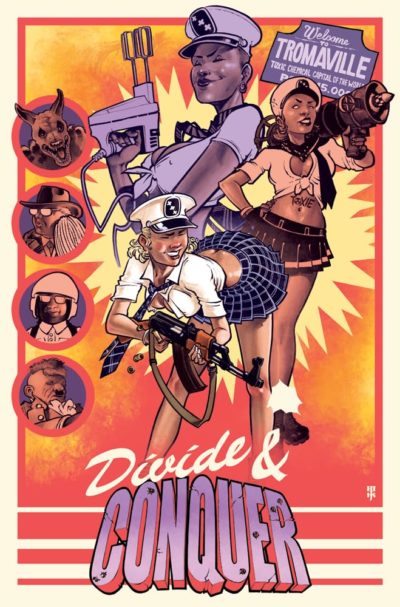 There are times where I regret my choice of pastime. It means I end up watching things for this site that I would never give the time of day, given the choice. This is one such, having endured the almost physically painful experience which was
There are times where I regret my choice of pastime. It means I end up watching things for this site that I would never give the time of day, given the choice. This is one such, having endured the almost physically painful experience which was 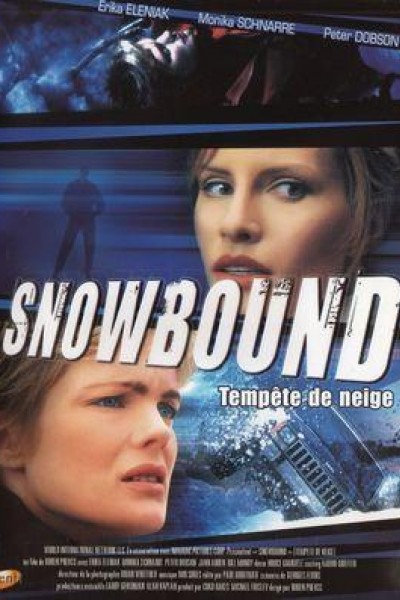 Though not formally listed on the IMDb as a made for television movie, it has all the hallmarks of one, down to what look suspiciously like pauses into which commercial breaks could be inserted. It’s the story of work colleagues, Liz Bartlett (Schnarre) and Barbara Tate (Eleniak). The former is attacked in the company’s parking garage one night, and confesses to her friend that her former husband is stalking her. She fears for her life, having helped put him behind bars. So what is the most sensible thing for the pair to do in these circumstances? If your answer is, “Head off to a remote mountain cabin, in the middle on an impending blizzard”, give yourself two points.
Though not formally listed on the IMDb as a made for television movie, it has all the hallmarks of one, down to what look suspiciously like pauses into which commercial breaks could be inserted. It’s the story of work colleagues, Liz Bartlett (Schnarre) and Barbara Tate (Eleniak). The former is attacked in the company’s parking garage one night, and confesses to her friend that her former husband is stalking her. She fears for her life, having helped put him behind bars. So what is the most sensible thing for the pair to do in these circumstances? If your answer is, “Head off to a remote mountain cabin, in the middle on an impending blizzard”, give yourself two points. Carla (Williams) and her boyfriend Daniel (Davis) are all set for a nice weekend in the mountains. Unfortunately, the snowmobile trip runs into difficulty, in particular coming in the shape of a pair of cartel assassins. What, you may ask, are a pair of cartel assassins doing half-way up a snowy mountain in [I’m guessing] the Colorado Rockies? Good question. I’m glad you asked. They are after a robber who made the ill-advised decision to rob a bar which was a front for their organization. He’s now hiding out, half-way up the aforementioned snowy mountain, in the belief he’s safe. Turns out not to be the case.
Carla (Williams) and her boyfriend Daniel (Davis) are all set for a nice weekend in the mountains. Unfortunately, the snowmobile trip runs into difficulty, in particular coming in the shape of a pair of cartel assassins. What, you may ask, are a pair of cartel assassins doing half-way up a snowy mountain in [I’m guessing] the Colorado Rockies? Good question. I’m glad you asked. They are after a robber who made the ill-advised decision to rob a bar which was a front for their organization. He’s now hiding out, half-way up the aforementioned snowy mountain, in the belief he’s safe. Turns out not to be the case.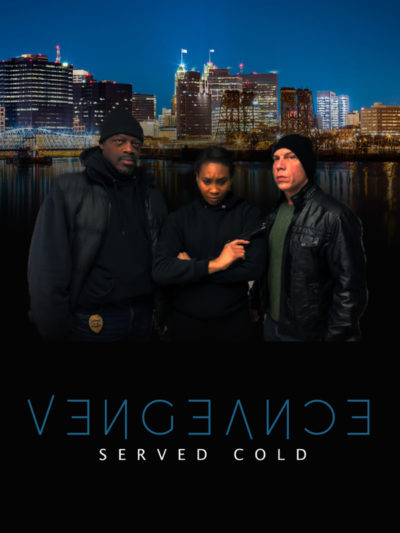 At the age of fifteen, Madison Michaels saw her prostitute mother beaten and killed by Renegade (Cross), a vicious local pimp. His homicide goes unpunished. Ten years later, Madison (Linton) is a counsellor, trying to help drug addicts and hookers get off the streets. She discovers that Renegade is still abusing women, and gets no help from the police, with Detective Straker (Williams) saying he can do nothing based on her hearsay. Against the advice of her friends and sister Lydia (Jeffries), Madison hatches a plan to take the pimp down, and clean the streets of thus piece of scum. Naturally, it doesn’t initially go quite as planned, with the trap set for Renegade backfiring, followed by betrayal from an unexpected direction.
At the age of fifteen, Madison Michaels saw her prostitute mother beaten and killed by Renegade (Cross), a vicious local pimp. His homicide goes unpunished. Ten years later, Madison (Linton) is a counsellor, trying to help drug addicts and hookers get off the streets. She discovers that Renegade is still abusing women, and gets no help from the police, with Detective Straker (Williams) saying he can do nothing based on her hearsay. Against the advice of her friends and sister Lydia (Jeffries), Madison hatches a plan to take the pimp down, and clean the streets of thus piece of scum. Naturally, it doesn’t initially go quite as planned, with the trap set for Renegade backfiring, followed by betrayal from an unexpected direction.  I went into this braced for it to be terrible, having sat through the same film-makers’, largely irredeemable
I went into this braced for it to be terrible, having sat through the same film-makers’, largely irredeemable 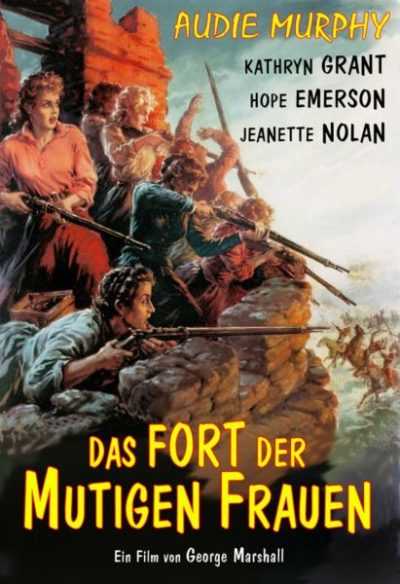 This is one where you need to take the era into account. Made in 1957, this was based on a short story from a couple of years earlier: “Petticoat Brigade” by Chester William Harrison. It’s very much an Audie Murphy movie – and understandably so, since the man was a bona fide hero, being one of the most-decorated American combat soldiers in World War II, before he became an actor. But the fifties was not a decade known for strong, independent female characters in Hollywood Westerns. We’ve covered a few:
This is one where you need to take the era into account. Made in 1957, this was based on a short story from a couple of years earlier: “Petticoat Brigade” by Chester William Harrison. It’s very much an Audie Murphy movie – and understandably so, since the man was a bona fide hero, being one of the most-decorated American combat soldiers in World War II, before he became an actor. But the fifties was not a decade known for strong, independent female characters in Hollywood Westerns. We’ve covered a few:  We’ve written about Griselda Blanco before. In particular, we reviewed telenovela La Viuda Negra, which was loosely based on her life and
We’ve written about Griselda Blanco before. In particular, we reviewed telenovela La Viuda Negra, which was loosely based on her life and 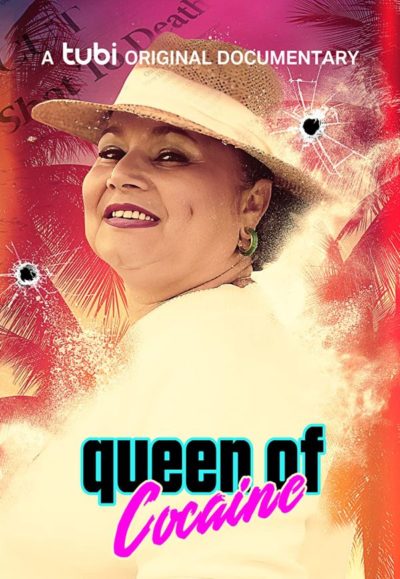 To my pleasant surprise, that’s not the case at all. Obviously, there’s a certain allure here, but it doesn’t needlessly glamourize or condemn its subject, and instead manages to do a good job of painting both sides, and depicting Griselda as a surprisingly complex character. This is particularly clear at the end, when her youngest son – named, amusingly, Michael Corleone – says of his mother, “Yes, it’s a legacy of violence. But she was a woman that had to become savage in a world that wasn’t made for her.” Then Detective Diaz, who headed the Miami task force charged with bringing her down, counters, “We have this bitch from hell who decides she wants to be meaner and more powerful than anybody else… Violence. Arrogance. Greed.
To my pleasant surprise, that’s not the case at all. Obviously, there’s a certain allure here, but it doesn’t needlessly glamourize or condemn its subject, and instead manages to do a good job of painting both sides, and depicting Griselda as a surprisingly complex character. This is particularly clear at the end, when her youngest son – named, amusingly, Michael Corleone – says of his mother, “Yes, it’s a legacy of violence. But she was a woman that had to become savage in a world that wasn’t made for her.” Then Detective Diaz, who headed the Miami task force charged with bringing her down, counters, “We have this bitch from hell who decides she wants to be meaner and more powerful than anybody else… Violence. Arrogance. Greed. 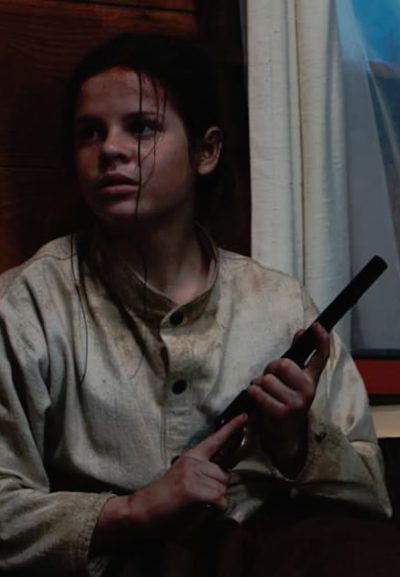 This one does take a while to reach the necessary threshold: probably only truly qualifies for the final twenty minutes or so, though it does talk a good game until that point. Also, it’s a decent enough combination of Western and home-invasion genres to that point, to pass muster. Nothing special, mind you. It just knows its limitations and is careful enough to work within them. It takes place in the Old West. whee Beth (Bernadette) and her twin children, Brian and Irene (Betsy) now live with her new husband, Robert (Krause). The trio appear to have escaped an abusive relationship, and it’s not long after a railroad surveyor pays a visit, before Irene is cheerfully telling him, she’s going to go back and kill her father some day.
This one does take a while to reach the necessary threshold: probably only truly qualifies for the final twenty minutes or so, though it does talk a good game until that point. Also, it’s a decent enough combination of Western and home-invasion genres to that point, to pass muster. Nothing special, mind you. It just knows its limitations and is careful enough to work within them. It takes place in the Old West. whee Beth (Bernadette) and her twin children, Brian and Irene (Betsy) now live with her new husband, Robert (Krause). The trio appear to have escaped an abusive relationship, and it’s not long after a railroad surveyor pays a visit, before Irene is cheerfully telling him, she’s going to go back and kill her father some day.